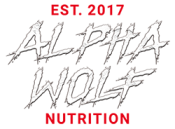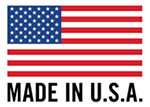
Everyday Chemicals Are Screwing Up Your Testosterone
You may have already read my other article on 7 habits which are killing your testosterone. There was a section in that on Water because

Zinc is an essential dietary mineral which has a direct effect on your immune system, cell division, and it is necessary for androstenedione to be converted into testosterone.
ZMA is what athletes call supplementation when you combine zinc, magnesium and vitamin B6.
Zinc by itself has had some outstanding scientific case studies showing its powerful benefits but when combined with magnesium and B6 the testosterone boosting capability greatly increases.

Human Case Study 1
For starters let’s look at the Western Washington University study done on the effects of supplementing with zinc, magnesium and vitamin b6 (used to enhance the absorption of Z and magnesium).
Researchers stated that “ZMA supplementation was associated with improved anabolic hormone profile and muscle function in already strength-trained varsity collegiate football players“. (1)
Let me be clear, there is no scientific bases for thinking Z will increase testosterone production if you are getting all that your body needs from your diet.
With that said, the above-mentioned study was done on strength trained football players in their prime and it still boosted their testosterone and strength.
This is partly because it’s hard to get enough Z in your diet and physical stress, whether it be from exercise or a demanding job, increases your need for zinc.
Human Case Study 2
Another study on wrestlers supplementing with zinc every day for 1 month were shown to have significantly higher testosterone and thyroid hormone levels compared to a placebo group which actually saw a decrease in both hormones likely due to the heavy workload. (2)
Human Case Study 3
One last study with “sedentary male volunteers” subjected to “fatiguing bicycle exercise” over a 4 week period were able to maintain and increase both total and free testosterone levels compared to the placebo group. (3)
The last two studies suggest zinc can not only increase testosterone, but it protects men from exercise induced reduction in testosterone levels which is a problem all active men have to deal with.
It’s also possible that it works to lower SHBG (Sex hormone-binding globulin) levels which binds to and inhibits the function of testosterone. (4)
As a side note, supplementing with boron is another great way to decrease SHBG levels.
Deficiencies of zinc can lead to a decrease in androgen receptors, an increase in estrogen receptors, and may increase aromatization of testosterone to estrogen like low levels of vitamin D.
A deficiency can have a drastic impact on your testosterone levels and zinc cannot be stored by the body so it must be consumed daily.
Given testosterone levels in men can vary greatly by the hour along with the fact we all know it’s impossible to eat everything we need for proper nutrition every single day of our lives, this is an important mineral to supplement with.
According to the Linus Pauling Institute, marginal Z deficiency affects more than 2 billion people worldwide! (5)
We could go on and on with studies but it’s clear having enough zinc in your system plays a major role in testosterone levels and it’s imperative you are not deficient.
We also know how hard it is to eat right all day, every day, with so much going on in life.
ZMA supplementation is a must to ensure maximum testosterone levels.
I recommend you take between 10 – 20 mgs of zinc every day, optimally along with magnesium and vitamin B6 for the ZMA complex and maximum potency.
Our natural T booster Force X7 includes the ZMA complex in its formulation with:
It also includes 10 additional vitamins, minerals and herbs to help you maximize your testosterone.
References:

You may have already read my other article on 7 habits which are killing your testosterone. There was a section in that on Water because

Rhodiola Rosea stands out as a potent adaptogenic herb with a rich history of traditional use and a growing body of scientific research. Revered for

In this comprehensive article, we will explore what L-tyrosine is, its benefits as a pre-workout supplement, the correct dosage, and other potential health benefits it

Betaine anhydrous is becoming an increasingly popular ingredient for pre-workouts. In this article, we will explore the fundamentals of betaine anhydrous, its connection to carnosine,

Beta-alanine is a pre-workout powerhouse. From boosting workout performance to potential anti-aging effects, discover why this amino acid is a favorite among health buffs.

You may have already read my other article on 7 habits which are killing your testosterone. There was a section in that on Water because

Rhodiola Rosea stands out as a potent adaptogenic herb with a rich history of traditional use and a growing body of scientific research. Revered for

In this comprehensive article, we will explore what L-tyrosine is, its benefits as a pre-workout supplement, the correct dosage, and other potential health benefits it

In the ancient wilderness, a legendary creature prowled the untamed lands—a fierce and noble Alpha Wolf. This majestic beast possessed an aura of strength and resilience, leading its pack with unwavering authority.
In a parallel realm, a group of visionary alchemists delved into the mysteries of nature, seeking to create potent elixirs that could unlock the true potential of those who dared to embrace their inner power.
As fate would have it, these paths crossed, and an extraordinary alliance was forged. The Alpha Wolf and the alchemists found common ground in their pursuit of greatness, and thus, Alpha Wolf Nutrition was born.
United by a shared passion for excellence, the Alpha Wolf and the alchemists dedicated themselves to crafting supplements that harnessed the raw force of nature, empowering individuals to conquer their inner and outer worlds.
At Alpha Wolf Nutrition, we draw inspiration from the primal instincts of the Alpha Wolf—the embodiment of strength, leadership, and vitality. We believe that every individual possesses a dormant power within, waiting to be awakened.
Through our meticulously crafted products, we strive to unleash this dormant potential, allowing you to thrive in the face of challenges and embrace your true nature.
Our commitment lies in providing you with the highest quality, scientifically proven ingredients, carefully curated to deliver optimal results. We leave no room for guesswork, basing our formulations on human-backed research to ensure real, tangible benefits. With us, you’ll find no “proprietary blends” or token additions—just pure, effective dosages that fuel your journey to greatness.
Join the pack of Alpha Wolves and embark on a transformative journey with Alpha Wolf Nutrition. Embrace your inner strength, rise above the ordinary, and conquer your aspirations. Unleash the power within and let the spirit of the Alpha Wolf guide you to achieve your highest potential. Welcome to Alpha Wolf Nutrition, where the path to greatness awaits.

Alpha Wolf Nutrition is based on real science and results for the people we serve.
We do not cut corners, we do not hide behind “proprietary blends” and we do not put in worthless amounts of token ingredients to fill up a label.
What we do, is kick ass!

© 2016 – 2023 Alpha Wolf
Discount Applied Successfully!
Your savings have been added to the cart.